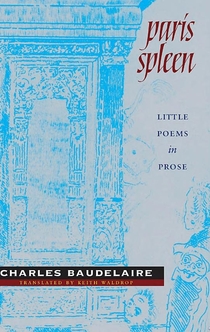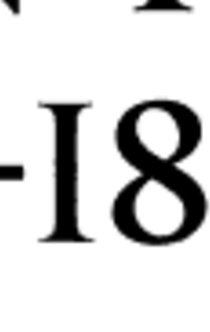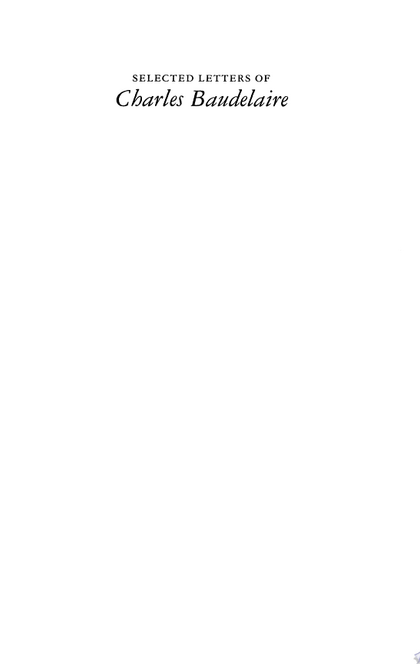
Paris Spleen
Between 1855 and his death in 1867, Charles Baudelaire inaugurated a new—and in his own words "dangerous"—hybrid form in a series of prose poems known as Paris Spleen. Important and provocative, these fifty poems take the reader on a tour of 1850s Paris, through gleaming cafes and filthy side streets, revealing a metropolis on the eve of great change. In its deliberate fragmentation and merging of the lyrical with the sardonic, Le Spleen de Paris may be regarded as one of the earliest and most successful examples of a specifically urban writing, the textual equivalent of the city scenes of the Impressionists. In this compelling new translation, Keith Waldrop delivers the companion to his innovative translation of The Flowers of Evil. Here, Waldrop's perfectly modulated mix releases the music, intensity, and dissonance in Baudelaire's prose. The result is a powerful new re-imagining that is closer to Baudelaire's own poetry than any previous English translation.
See all

Art in Paris, 1845-1862
Charles Baudelaire, one of the greatest French poets of the nineteenth century, has been described as "the father of modern art criticism." Rejecting a cold, mathematical, heartless approach, Baudelaire demanded instead a criticism that was "partial, passionate and political" and, he added, "amusing and poetic." His starting point was always the shock of pleasure experienced on the first visual encounter with a work of art. Eloquent, original, his writing conveys the excitement of personal involvement. This new paperback version of the highly praised earlier edition contains Baudelaire's accounts of the art exhibitions held in Paris between 1845 and 1862. There are extended reviews of the Salons of 1845, 1846, and 1859; three articles on the Exposition Universelle of 1855 (the first containing a major statement of Baudelaire's critical method); an essay on the special exhibition held at the Bazar Bonne-Nouvelle in 1846, in which Baudelaire gives his views on David and his School; and the article "Painters and Etchers" of 1862, which includes Baudelaire's only published reference to Manet and an enthusiastic welcome to Whistler. Jonathan Mayne's translation captures all the artist's spontaneity, and Mayne's extensive notes will help English-speaking readers to discover for themselves the ideas and insights of Baudelaire
See all

Late Fragments
The first English collection of the late poetry and prose fragments of literary icon Charles Baudelaire "[A] handsome new book . . . all this inchoate material is given context by Sieburth's learned, elegantly written commentary. He is the perfect guide."--Michael Dirda, Washington Post "[These] unfinished works written after 1861 . . . deliver what their titles seem to promise: a soul stripped of guises and illusions."--Ange Mlinko, New York Review of Books While not as well-known as his other works, Charles Baudelaire's late poems, drafts of poems, and prose fragments are texts indispensable to the history of modern poetics. This volume brings together Baudelaire's late fragmentary writings, aphoristic in form and radical in thought, into one edited collection for the first time. Substantial introductions to each work by Richard Sieburth combine the literary context with formal analysis and reception history to give readers a comprehensive picture of the genesis of these works and their subsequent fate. Baudelaire's turn toward fragmentary writing involved not only a conscious renunciation of his aesthetics of perfection and unity, but a desertion of the harmonies of the traditional lyric in favor of the disjunctions of prose. These are daring works, often painful to read in their misanthropy and unconventional beauty.
See all

Belgium Stripped Bare
In April of 1864, Baudelaire departed Paris for Brussels with something of a massive shipwreck in his wake: his major work, Les fleurs du Mal, had been condemned and censored a decade earlier, many of his other works were out of print, and he pawned his prized Poe translations to gain much needed survival money. Fearful of being imprisoned for debt, the poet who was an outcast in Paris would soon become a pariah in Brussels. Not long after his arrival, rumors spread that he was a spy reporting on Republican exiles on behalf of the French police. While encountering a pestiferous city in the midst of redevelopment, and after failing to secure a publisher for his work, Baudelaire would begin writing notes for his projected book on Belgium. In his catalogus rerum of Brussels and the Belgians, the general overruling condition is one of blandness and dissolution: with observations ranging from those of a sociologist to an anthropologist, city planner, and aesthete, through Baudelaire's fleeting eye, we witness his examination of physiognomy, cultural and political customs, Belgium's fear of annexation by France, & more. Deemed a mean-spirited and even xenophobic book by figures such as Derrida, Baudelaire himself spoke of it as a sketch and satire that had the double advantage of being a caricature of the follies of France and a simulacrum of a Democratic state. As he attempted to complete his project on Belgium as well as other works, Baudelaire suffered violent attacks of neuralgia, then, in early 1866, he was plagued with more attacks, dizzy spells, and nausea. After a cerebral stroke, he was left hemiplegic and mute. In this veritable full-scale examination of every aspect of life in Belgium, Baudelaire's perspectival eye catches a world in a glance. The poet's plethora of notes and vast collection of related newspaper clippings (summarized within) reveal to us the inner workings of his mind, what Blake called the artist's Infernal workshop. Belgium Stripped Bare is an aesthetico-diagnostic litany of often vitriolic observations whose victory is found in the act of analysis itself, in the intoxication of diagnosis, just as great comedians exult in caustic and biting observations of society, a slap in the face of the status quo.
See all

Charles Baudelaire - His Life
First published in 1915, this volume contains Théophile Gautier's biography of the French poet, art critic, and essayist Charles Pierre Baudelaire (1821–1867). Baudelaire's wonderful poems are known for their masterful use of rhyme and rhythm which, together with their Romantic exoticism, inspired a whole generation of poets including Arthur Rimbaud, Paul Verlaine and Stéphane Mallarmé. In “Charles Baudelaire - His Life”, Gautier provides a detailed sketch of Baudelaire's life and memoirs together with some of his best poetry and notable correspondence, offering a unique glimpse into the life and work of one of France's most influential writers. Contents include: “Charles Pierre Baudelaire”, “The Life and Intimate Memoirs of Charles Baudelaire, by Théophile Gautier”, “Selected Poems of Charles Baudelaire”, “Little Poems in Prose”, and “Correspondence of Baudelaire”. Pierre Jules Théophile Gautier (1811–1872) was a French dramatist, poet, journalist, novelist, and critic. A vocal proponent of Romanticism, he was held in high esteem by many great writers including Wilde, Flaubert, Balzac, Eliot, and many others. Notable works by this author include: “La Comédie de la Mort” (1838), “Une Larme du Diable” (1839), and “Le Pied de Momie” (1840). Ragged Hand is proudly republishing this classic work now complete with a specially commissioned new biography of the author.
See all

Delphi Collected Poetical Works of Charles Baudelaire (Illustrated)
Regarded as the first author of the Symbolist tradition, the French poet Charles Baudelaire almost singlehandedly shifted the literary world from the Romanticism of statement and emotion to the modern poetry of symbol and suggestion. His strikingly original works are noted for their psychological and moral complexity, powerfully representing the thinking of modern man. Baudelaire’s most famous work, ‘Les Fleurs du mal’ (The Flowers of Evil) was published in 1857, when it caused a literary sensation. For many, it is considered the most influential poetry collection of the nineteenth century. The Delphi Poets Series offers readers the works of the world’s finest poets, with superior formatting. This volume presents Baudelaire’s collected poetical works, with related illustrations and the usual Delphi bonus material. (Version 1)* Beautifully illustrated with images relating to Baudelaire’s life and works* Concise introduction to Baudelaire’s poetry by Henry James* Images of how the poetry books were first printed, giving your eReader a taste of the original texts* Features the original French text of ‘Les Fleurs du mal’ (Édition de 1868)* Excellent formatting of the poems* Includes a range of translations of Baudelaire’s famous poems* Easily locate the poems you want to read* Features two biographies, including Théophile Gautier’s seminal study of his friend — discover Baudelaire’s incredible lifePlease visit www.delphiclassics.com to see our wide range of poet titlesCONTENTS:The Poetry of Charles BaudelaireBrief Introduction: Charles Baudelaire by Henry JamesLes Fleurs du Mal (Original French Text)Selected Poems of Charles Baudelaire Done into English Verse (1915) (Guy Thorne translation)The Poems and Prose Poems of Charles Baudelaire (1919) (James Huneker translation)Baudelaire: His Prose and Poetry (1919) (Arthur Symons, F. P. Sturm, W. J. Robertson and Richard Herne Shepherd translations)The BiographiesCharles Baudelaire, His Life (1915) by Théophile Gautier (Guy Thorne translation)Charles Baudelaire (1911 Encyclopædia Britannica)Please visit www.delphiclassics.com to browse through our range of poetry titles or buy the entire Delphi Poets Series as a Super Set
See all

Twenty Prose Poems
"From the introduction by Michael Hamburger: " "Baudelaire's prose poems were written at long intervals during the last twelve or thirteen years of his life. The prose poem was a medium much suited to his habits and character. Being pre-eminently a moralist, he needed a medium that enabled him to illustrate a moral insight as briefly and vividly as possible. Being an artist and sensualist, he needed a medium that was epigrammatic or aphoristic, but allowed him scope for fantasy and for that element of suggestiveness which he considered essential to beauty. His thinking about society and politics, as about everything else, was experimental; like the thinking of most poets it drew on experience and imagination, rather than on facts and general arguments. That is another reason why the prose poem proved a medium so congenial to Baudelaire."
See all

Baudelaire on Poe
Renowned poet Charles Baudelaire played a significant role in introducing Edgar Allan Poe to French readers by publishing widely read criticisms and translations of Poe's writings. The two writers shared an appreciation for the exotic, a taste for morbid subjects, and a devotion to artistic purity. Baudelaire immersed himself in the study of English for the express purpose of doing justice to Poe's works, and his translations established his reputation in the French literary world well before the publication of his most famous book of poetry, Les Fleurs du Mal.In the first part of this study, "Edgar Allan Poe, His Life and Works," Baudelaire sketches his subject's biography and discusses several representative writings. Two additional essays analyze Poe's literary theories and offer intriguing reflections of Baudelaire's own sense of aesthetics. The compilation concludes with a critical miscellany of several other prefaces and notes on the American author and his works.
See all

Baudelaire: Selected Writings on Art and Artists
Before publishing Les Fleurs du Mal in 1857, Baudelaire was probably better known to his contemporaries as a critic than as a poet, and the articles translated here by P. E. Charvet illustrate the development of Baudelaire's critical ideas. The essays cover the visual, literary, and musical arts. From the early 'Salon' of 1846 Baudelaire's commitment to the cause of Delcroix was passionate and unswerving and it remains a theme of a number of these pieces. Baudelaire's literary criticism is represented by, amongst others, the two important articles on Poe, the spirited defence of Madame Bovary published shortly after Flaubert had been acquitted on a charge of offending public morality and the long article on Gautier, to whom Baudelaire dedicated Les Fleurs du Mal. The musician whom Baudelaire admired above all others was Wagner, and the article on Tannhäuser published at the time of the Paris production in 1861 shows his percipience as a critic: with no technical knowledge of music, Baudelaire nevertheless demonstrates an instinctive awareness of the magical power of suggestion in Wagner's music.
See all

Baudelaire as a Literary Critic
Makes available for the first time in English translation all of Baudelaire's literary essays.

Essence of Laughter and Other Essays, Journals and Love Letters
Includes Painter Of Modern Life And Poem Of Hashish.

Complete Poems
Rimbaud called Charles Baudelaire 'le premier voyant, roi des poetes, un vrai dieu'. The history of modern poetry begins with him. This is a comprehensive translation of all Baudelaire's poetry, excluding only juvenilia, occasional verse and work of doubtful attribution. Baudelaire contemplated a volume of poems that would 'launch him into the future like a cannon-ball'. Here it is in vivid and formally authoritative translation.
See all

The Poems And Prose Of Charles Baudelaire
Baudelaire is a masculine poet. He carved rather than sang; the plastic arts spoke to his soul. A lover and maker of images. Like Poe, his emotions transformed themselves into ideas. Bourget classified him as mystic, libertine, and analyst. He was born with a wound in his soul, to use the phrase of Père Lacordaire. Recall Baudelaire's prayer: "Thou, O Lord, my God, grant me the grace to produce some fine lines which will prove to myself that I am not the last of men, that I am not inferior to those I contemn." Individualist, egoist, anarchist, his only thought was letters. Jules Laforgue thus described Baudelaire: "Cat, Hindoo, Yankee, Episcopal, Alchemist." Yes, an alchemist who suffocated in the fumes he created. He was of Gothic imagination, and could have said with Rolla: "Je suis venu trop tard dans un monde trop vieux." He had an unassuaged thirst for the absolute. The human soul was his stage, he its interpreting orchestra.
See all

Selected Poems
I have sought forgetful sleep in love; but love is nothing but a mattress of needles.

Baudelaire in English
Perhaps the most explosively original mind of his century, Charles Baudelaire has proved profoundly influential well beyond the borders of nineteenth-century France. Writers from Lord Alfred Douglas to Edna St. Vincent Millay, from Aldous Huxley to Seamus Heaney, from Arthur Symons to John Ashbery, from Basil Bunting to Robert Lowell, have all attempted to transmit in English his psychological and sexual complexity, his images of urban alienation. This superb addition to the Poets in Translation series brings together the translations of his poetry and prose poems that best reveal the different facets of Baudelaire's personality: the haughtily defiant artist, the tormented bohemian, the savage yet tender lover, and the celebrant of strange and haunted cityscapes.
See all

Selected Letters of Charles Baudelaire
Undeniably one of the modern world's greatest literary figures, Charles Baudelaire (1821-67) left behind a correspondence documenting in intimate detail a life as intense in its extremes as his poetry. This extensive selection of his letters—many translated for the first time into English—depicts a poet divided between despair and elation, thoughts of suicide and intimations of immortality; a man who could write to his mother, "We're obviously destined to love one another, to end our lives as honestly and gently as possible," and say in the next sentence, "I'm convinced that one of us will kill the other"; who courted and then suffered the controversy provoked by his masterpiece, Les Fleurs du mal; who struggled throughout his life with syphilis contracted in his youth, near-intolerable financial restrictions imposed by his stepfather, and conflicting feelings of failure and revolt dating from his school days. Writing to family, friends, and lovers, Baudelaire reveals the incidents and passions that went into his poetry. In letters to editors, idols, and peers—Hugo, Flaubert, Vigny, Wagner, Cladel, among others—he elucidates the methods and concerns of his own art and criticism and comments tellingly on the arts and politics of his day. In all, ranging from childhood to days shortly before his death, these letters comprise a complex and moving portrait of the quintessential poet and his time.
See all

The Flowers of Evil
The greatest French poet of the 19th century, Baudelaire was also the first truly modem poet, and his direct and indirect influence on the literature of our time has been immeasurable. Flowers of Evil: A Selection contains 53 poems which the editors feel best represent the total work and which. in their opinion, have been most successfully rendered into English. The French texts as established by Yves Gérard Le Dantec for the Pléiade edition are printed en face. Included are Baudelaire's "Three Drafts of a Preface" and brief notes on the nineteen translators whose work is represented.
See all









Comments